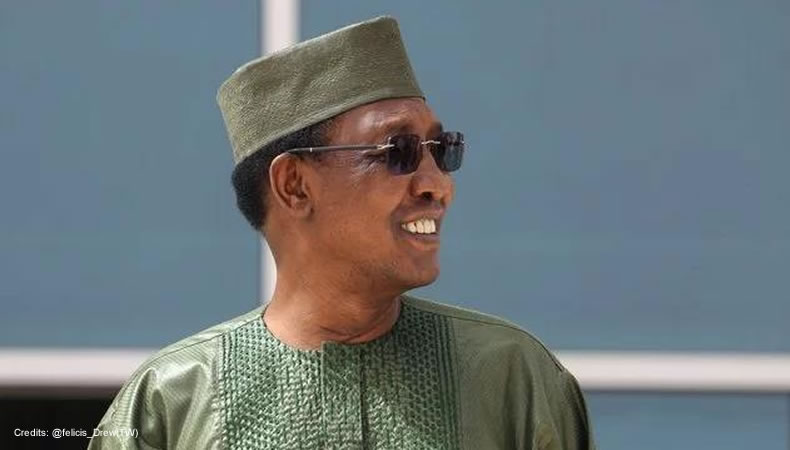Chad, the president killed by the rebels

African leaders allied to the West are not always the best statesmen possible. Indeed rarely. Idris Déby Itno, 68, who has been in power continuously for 31 years in Chad, belonged to that elite of “presidents almost for life” friends of the West, who seem eternal. Always flawless, always the same. Always fond of power.
Even in the last, the highly contested election held on 11 April last, and which ended with the scrutiny of all the ballots only yesterday, 19 April, Idris came out the winner with an almost plebiscite (80% of the votes). But his sixth term lasted only one day. The time to take the lead in his army and try to stop the column of the Front pour l’ternance et la Concorde au Tchad (Fact), a group of rebels based in Libya who, after having broken through the porous northern border, was heading in the direction of the capital N’Djamena.
President of Chad, a desert state almost four times the size of Italy with only 11 million inhabitants, but geographically strategic, Idris died following reports of violent clashes between the national army and rebels in the north of the country.
The son-general Mahamat in power for 18 months
As befits any African crisis, the government and parliament have been dissolved and a military council will rule over the next 18 months.He will be led by the late president’s son, Mahamat Idriss Déby Itno, a general of only 37 who can already boast four stars. He should only ferry the country to the next elections. For 18 months. But the feeling is that, like other generals who came to power after bloody events, we will still hear about General Mahamat for a long time.
Idris, raised and militarily trained in France, was the president who defended his people from extremism, and who fought the increasingly aggressive Islamic terrorism present in the Sahel also for Paris and the West. He knew how to use the iron fist because he had used it for a long time in his life. Even when he came to power, also with a coup d’état launched by neighboring Sudan, in 1990, overthrowing the dictator Hissene Habrè. Then in Chad, he was raging the war against Libya of the powerful Rais Muammar Gaddafi.
Déby had risked being overthrown by rebel groups from Chad on several occasions. In 2009, when they reached the gates of the capital, and his capitulation seemed only a matter of time, he was saved once again by the French mirages. Of course, his government had been tainted too often by acts of corruption, especially since, thanks to the construction of a thousand-kilometers-long pipeline, he had begun to export crude oil to neighboring countries in 2003. Not infrequently how the administration of Déby managed the country had been an embarrassment for those European chancelleries that supported it, in particular France.
He too had succumbed to the temptations to which many other presidents have succumbed almost for life. That is to give a strong shoulder to the Constitution, which usually provides for a maximum number of presidential terms, changing it to suit their interests and potentially remain in power until 2033, in other words at the age of 80.
But as for firmness in the fight against terrorism. Idris perhaps had no equal in all of the Sahel. He was the most active, perhaps also because the most threatened, in the war against the ferocious extremists of Boko Haram, who were increasing their presence in the country from the Lake Chad Basin. But he was also a man who had stood up to the most famous brands of terror, from al-Qaeda in the Islamic Maghreb to the new formations sympathetic to the Islamic State.




